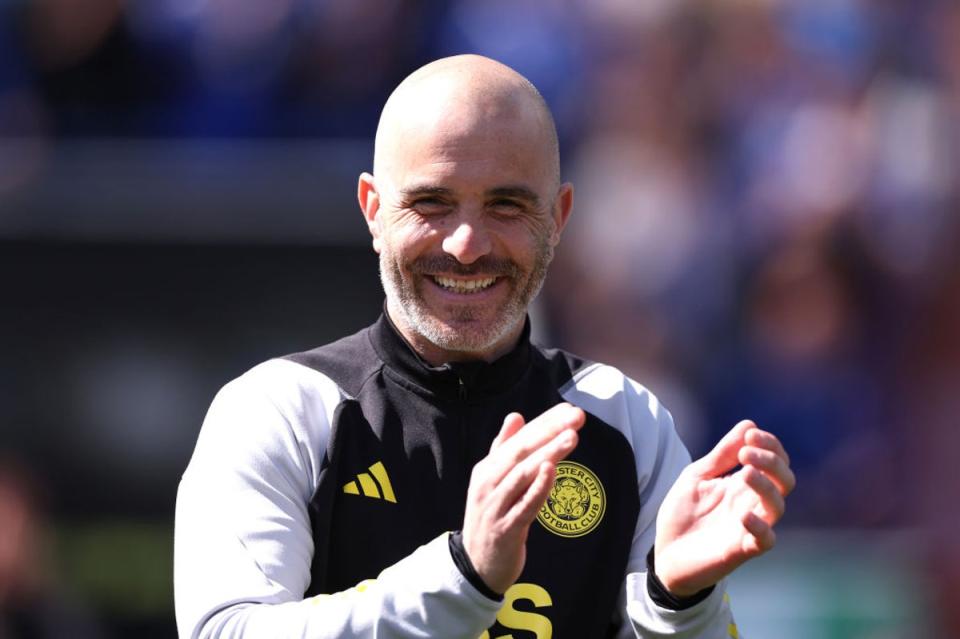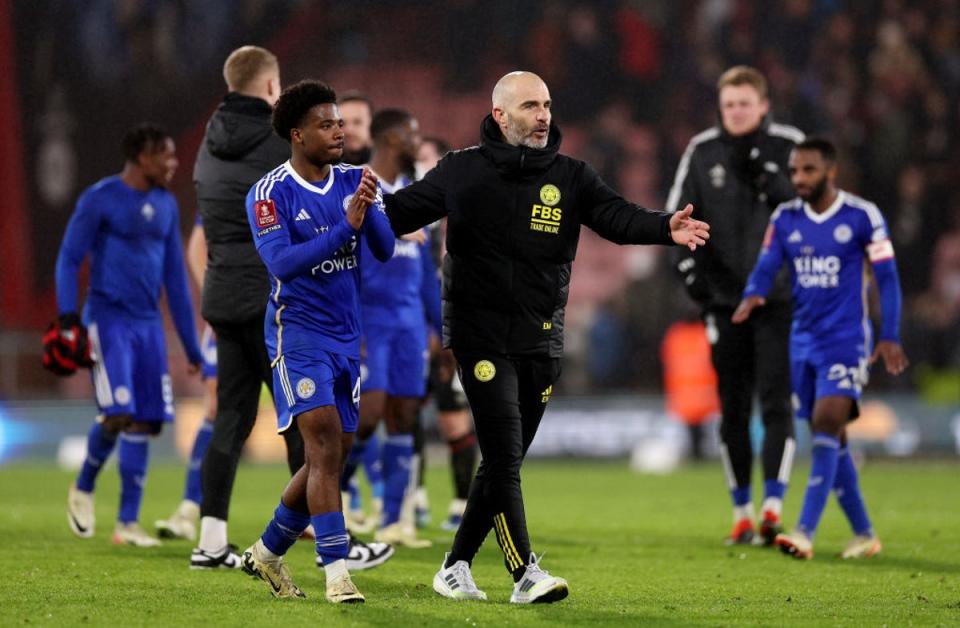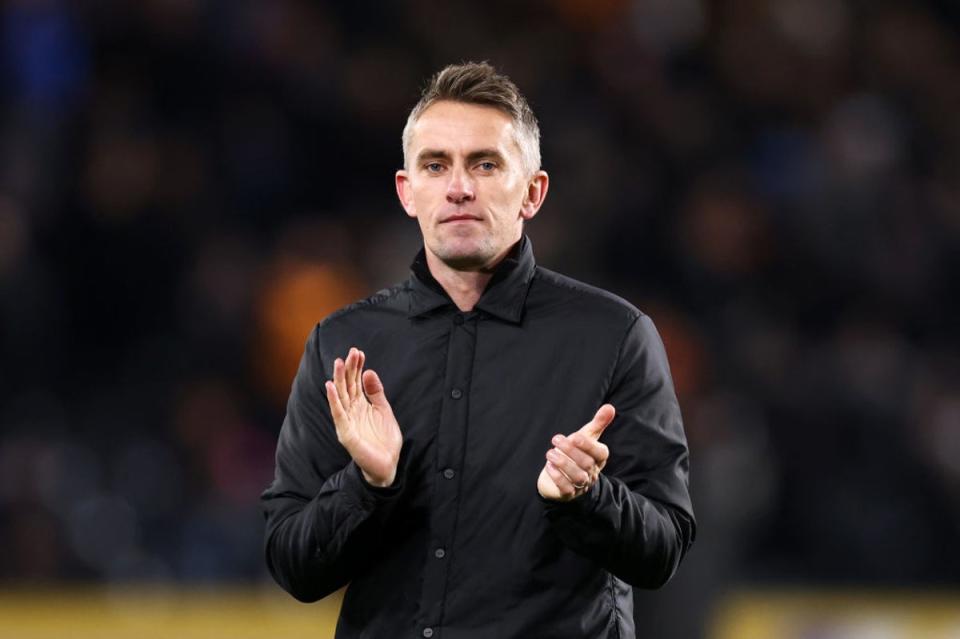Enzo Maresca appointment suits this version of Chelsea – but not in the way they might like

There was a time when the qualifications required to manage Chelsea seemed to entail winning the Champions League, not the Championship. There is a history of Italian managers at Stamford Bridge but they used to arrive having taken charge of more games against Roma than Rotherham, Inter than Ipswich, Milan than Millwall.
But perhaps Enzo Maresca is the most appropriate soon-to-be-confirmed appointment for the new Chelsea: many of their signings have been punts on potential, based on very little experience of first-team football at high levels but with the assumption they have a high ceiling. Enter a manager with a similar rawness: 14 games at Parma, one season at Leicester, neither of them in the first division in their respective countries. Once again, Chelsea believe they are the talent spotters supreme.
Maresca can also be seen as part of the Guardiolaisation of football. At various points in 2024, Pep Guardiola’s former players or backroom staff will manage Barcelona, Bayern Munich, Bayer Leverkusen, Arsenal, Chelsea and Manchester United. Thus far, there is most evidence the magic rubbed off on Xabi Alonso, who last played for the current Manchester City manager eight years ago. If they are not all mini-Peps, there seems a broader quest to adopt his ideas.
Maresca, assistant manager in the treble-winning season, has won silverware more recently than Chelsea. He will arrive equipped with a deluxe footballing education.
And with a haul of 97 points, too – but at second-tier level. Hiring Maresca to replace Mauricio Pochettino offers echoes of Clearlake Capital’s decision to dispense with Thomas Tuchel and bring in Graham Potter: axing a manager with ample experience at this level, accustomed to dealing with big-name players and working in the fiercest of spotlights, and appointing one who is not.
The Potter precedent may be unfair to Maresca; history is not necessarily doomed to repeat itself. Yet there are pertinent parts: the Chelsea job was too big for Potter, who looked lost. He had passing principles but they did not translate to attacking or incisive football. Leicester scored 89 league goals last season but some of Maresca’s football was too pedestrian for fans’ liking. There was anger in the stands when Leicester threatened to blow a commanding lead in their ultimately successful bid for automatic promotion.
All of which may not bode well as he enters a potentially febrile environment. There is an obvious potential for things to turn toxic. Choosing Maresca is asking the Chelsea supporters to trust owners they already don’t trust. He starts with the initial impediment that few think that Clearlake is a byword for good judgement. Moreover – and while Pochettino was scarcely an idol on the terraces, his fine finish to last season undermined the case for change – Chelsea’s powerbrokers have twice dispensed with managers whose track records give them credibility and who have shown a capacity for independent thinking they did not seem to like.
Neither Tuchel nor Pochettino seemed to want to be just a low-level functionary in a new system designed so the powers lie with the owners. It is no surprise the more outspoken Roberto De Zerbi did not emerge as their preferred candidate. The danger is Maresca, like Potter, is just seen as their yes man.

And yet he could not say no. The prospects for promoted teams are perilous enough even without the current context at Leicester: the likelihood of a very limited budget; the possibility of a points deduction for past breaches of profit and sustainability regulations. Certainly, some rival clubs are expecting to see Leicester stripped of some points. That might not be Maresca’s problem now (unless, of course, Chelsea join them in the minus club after their own overspending).
If Chelsea is scarcely the ideal life raft – many a recent manager has found himself tossed overboard – there is also the chance that Maresca may not get too much blame in the wider world if he becomes another casualty of the Clearlake era. Their requirements seem to include a top-four finish, and their financial issues may necessitate more focused trading than they have mustered in the past, both raising funds and filling the gaps that remain in the side with high-class players who can both gel with the existing squad and provide what they lack. Succeeding there is no easy feat.
It is at least auspicious he made an immediate impact at Leicester, winning 13 of his first 14 league games. He joins with some rave reviews. Harry Winks said Maresca was “by far” the best manager he had ever worked with; he played in a Champions League final under Pochettino.
And yet in other respects, Maresca looks like a downgrade on Pochettino. He hardly feels Chelsea’s first choice, even among managers promoted from the Championship last season; that distinction seemed to lie with Kieran McKenna.

The days when Chelsea used to target those already established as among the world’s best managers seem distant, even if it is less than four years since Tuchel was lured to London.
But if that partly reflects a broader trend in the managerial market, it also means Maresca is anointed with precious little evidence he has the credentials. It doesn’t automatically make him Potter Mk II, but couple it with a regime who have yet to succeed with a managerial appointment and Maresca begins with a sense of surprise at the swiftness of his rise but scepticism about his prospects.
Getting 97 points at Leicester was an achievement. Lasting 97 games at Chelsea will be a bigger one.

